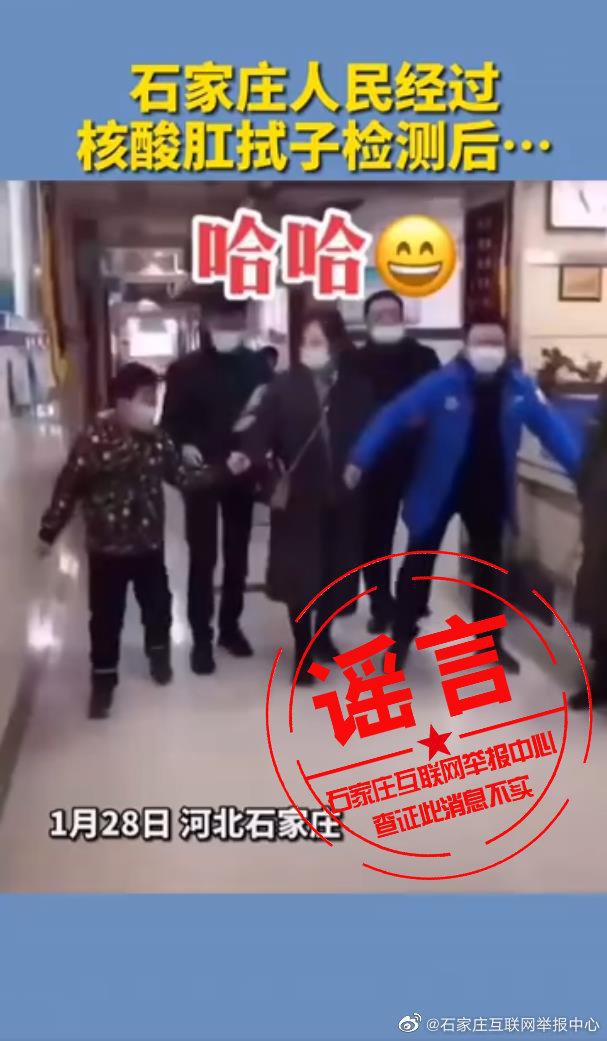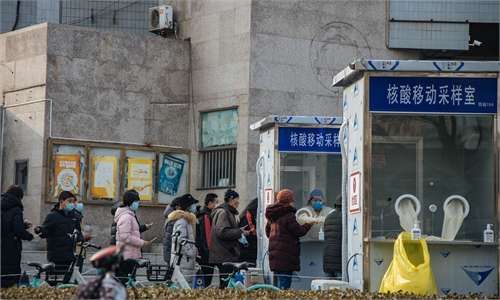Authorities in Shijiazhuang say video showing citizens walking like penguins after anal swab coronavirus test not true

Photo: Weibo
Local authorities of Shijiazhuang in North China's Hebei Province say a video purportedly showing people walking like penguins after having a coronavirus test using anal swabs, is not true.
The video, which is accompanied by a laugh-track, purports to show people in Shijiazhuang walking stiff-legged after being tested using an anal swab, has likely been viewed millions of times on several Chinese social network platforms.
The Shijiazhuang Internet Report Center claims the viral video was edited and doctored and it verified with the municipal health department and the chief physician of Shijiazhuang No. 5 Hospital, who is a member of the municipal COVID-19 medical treatment expert group that healthy people aren't test for the virus using an anal swab.
Shijiazhuang authorities say specimens collected from communities were oral or nasal swabs. Anal swab specimens are only collected from hospitalized COVID-19 patients suffering from diarrhea, and the anal swab test causes no obvious discomfort.
Media reports show that amid the looming shadow of COVID-19 flare-ups across the country, many cities have rolled out anal swab testing for key groups in quarantine centers, which has startled Chinese netizens.
Numerous netizens who had been tested using the lower body method said there is no obvious discomfort from the anal swab test, and some suggested the video, which shows only boys, was taken after they had been circumcised.
Lu Hongzhou, co-director of the Shanghai Public Health Clinical Center at Fudan University in Shanghai, told the Global Times that taking an anal swab can increase the accuracy of the test for the coronavirus. However, given that the method is not as convenient as throat swabs, it is only used for key groups under special circumstances.
Internet reporting center warned that people who spread online rumors may be held legally responsible and that people should seek confirmation from local authorities of information that has not been verified.
Global Times

